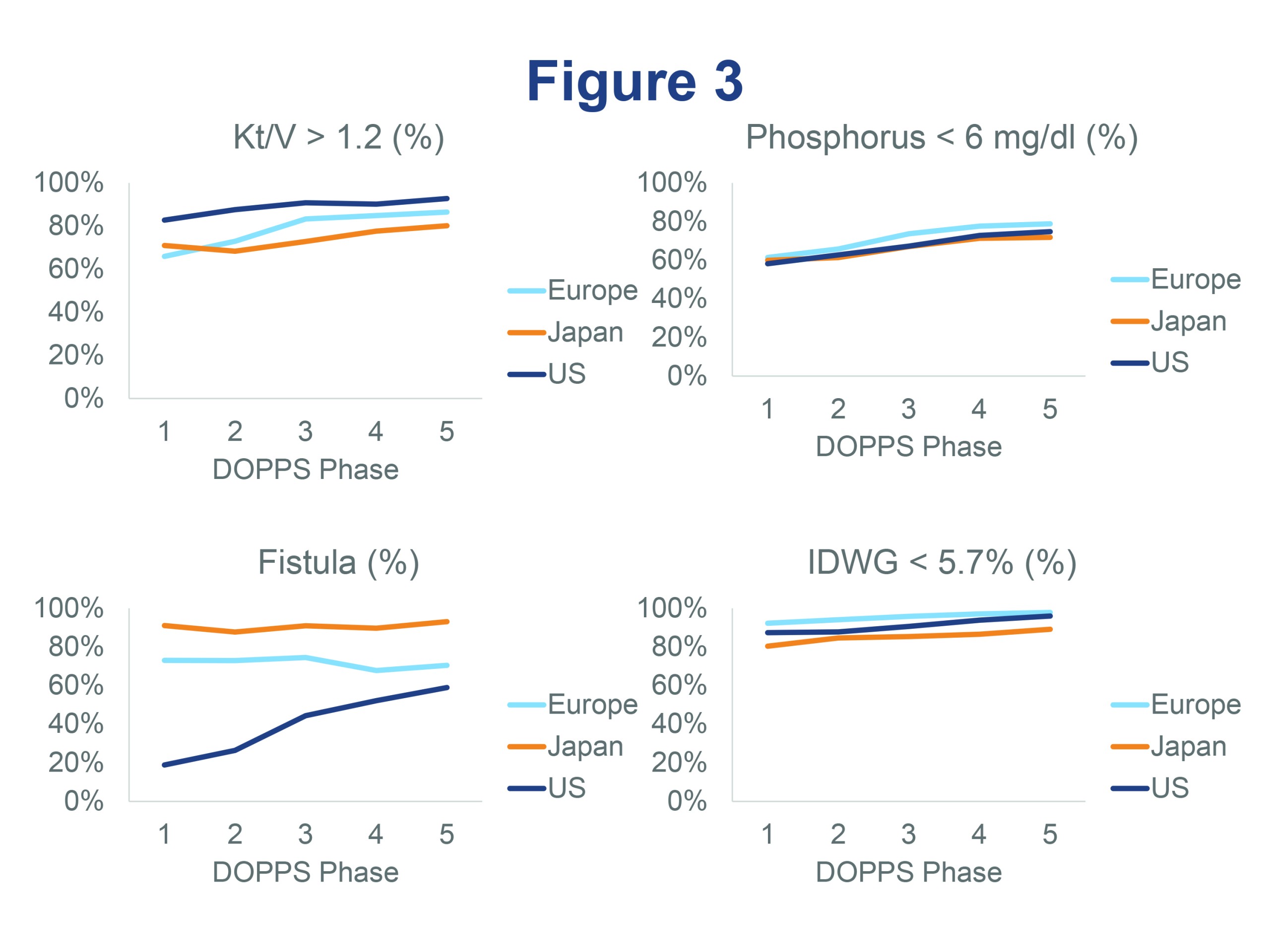Share
Share

A newly published article in the American Journal of Kidney Diseases, titled “Explaining International Trends in Mortality on Hemodialysis Through Changes in Hemodialysis Practices in the Dialysis Outcomes and Practice Patterns Study (DOPPS),” reveals significant findings on the factors contributing to improved patient survival rates among hemodialysis patients worldwide. The study, led by Arbor Research Collaborative for Health research scientist, Keith P. McCullough, PhD, highlights the critical role that evolving facility dialysis practices have played in reducing mortality rates across different continental regions.
The observational prospective cohort study analyzed data from 500 hemodialysis facilities participating in DOPPS between 1999 and 2015. It focused on adult patients undergoing hemodialysis in the United States, Japan, and four European countries: Germany, Italy, Spain, and the United Kingdom.
“These findings underscore the critical importance of evolving common facility dialysis practices in improving patient survival worldwide. Our study demonstrates that targeted advancements, such as enhanced phosphorus management and the increased use of arteriovenous (AV) fistulae, have significantly contributed to the remarkable improvements in survival rates among hemodialysis patients, says Dr. Keith P. McCullough, lead author. “This progress reflects the dedication of healthcare professionals across the globe to continually refine and optimize care practices, offering a promising path forward for even greater patient outcomes in the future.”
Key Findings:
- Europe: A 13% improvement in case-mix adjusted survival per decade was observed, with 77% of this improvement attributable to facility practices, particularly enhancements in Kt/V and phosphorus management.
- Japan: The study found a 12% improvement in survival per decade, with 73% of this attributed to practices such as better Kt/V management and controlling interdialytic weight gain.
- United States: A remarkable 47% improvement in survival per decade was observed, with 56% of this attributed to practices including the increased use of AV fistulae and improved phosphorus control.
These results highlight the substantial impact that targeted improvements in hemodialysis facility practices have had on patient outcomes over the past two decades. The study employed mediation analyses, adjusting for case mix, to identify the specific practices contributing to survival improvements in each region.
Notable improvements in adjusted hemodialysis patient survival in Europe, Japan, and the United States from 1999 to 2015 can be largely explained by advancements in specific facility practices. The study emphasizes the potential for further improvements in patient survival through continued evolution and implementation of these practices.
The authors note that unmeasured changes in patient characteristics over time could confound some of the observed associations, though the study provides robust evidence of the benefits of specific facility practices.
This research underscores the importance of ongoing efforts to optimize dialysis practices globally and provides a roadmap for future improvements in patient care and outcomes.
January 8, 2025 — Christopher Spera, President and CEO of Arbor Research Collaborative for Health, announced the election of Bryan K. Johnson, JD, MBA to the Arbor Research board of directors in 2025. Mr. Johnson was a co-founder of Insight Policy Research in 2001. His strategic development, operational management, and financial oversight led the start-up
December 5, 2024 — Arbor Research Collaborative for Health is proud to announce an innovative collaboration with the Nephrology Associates of Northern Illinois and Indiana (NANI), the largest private nephrology practice in the United States. This partnership marks a significant milestone in advancing chronic kidney disease (CKD) research and management by leveraging NANI’s extensive patient-level
Arbor Research Collaborative for Health is excited to announce a partnership with CSL Vifor to launch a multinational registry designed to capture real-world outcomes of difelikefalin (Kapruvia®), a newly-approved treatment for chronic kidney disease-associated pruritus (CKD-aP) in hemodialysis (HD) patients. Known as PARADIGM (PAn european Registry Addressing pruritus in DIalysis with a focus on Goal
The Health Resources and Services Administration (HRSA) has selected Arbor Research Collaborative for Health (Arbor Research) as one of 14 organizations who will lead the modernization of the Organ Procurement and Transplantation Network (OPTN). Arbor Research received one of the five initial efforts, focusing on improving patient safety and policy compliance systems and processes overseen